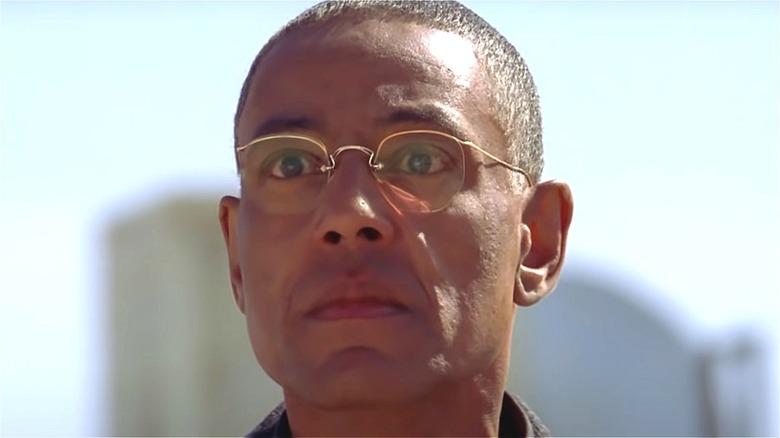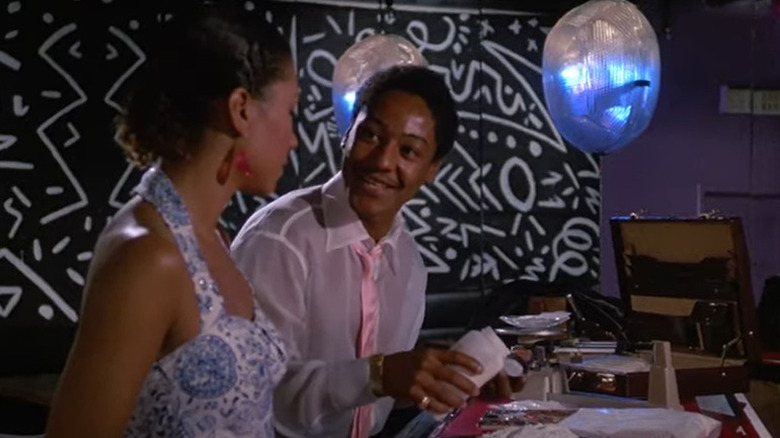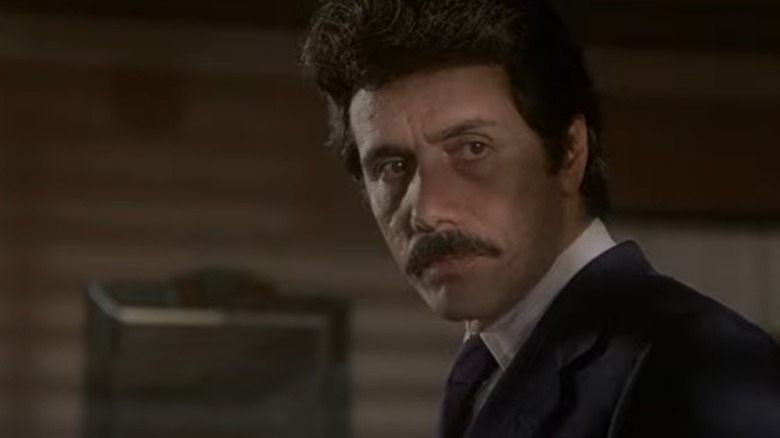The Miami Vice Character That Inspired Gus Fring On Breaking Bad
Gustavo Fring, portrayed by Giancarlo Esposito on "Breaking Bad," is such a cold-hearted, ingenious, and memorable villain that he rivals even Walter White. Gus Fring's character is so essential to the series that it's surprising Esposito was originally offered only a guest role (via Time). But Esposito had done a lot of guest roles in the past and was not interested in doing more. Instead, he wanted to fully develop a complex individual who was an essential part of a series.
Because Fring was not originally intended to be a permanent character in the series, Esposito played perhaps an even more significant role than actors usually do in developing their own characters: Creator Vince Gilligan told him that he "changed the game and raised the bar" when he managed to turn Gus Fring into a long-term staple of "Breaking Bad." Along the way, Esposito drew inspiration from several places.
First, Esposito used aspects of his personal life to develop the polite, pleasant side of Gus. According to Entertainment Weekly, he also took an idea from Gilligan's rudimentary stage notes: that Fring, as a villain, is "hiding in plain sight." Esposito employed this terrifying concept of a bad guy who is able to appear polite, successful, and stable to everyone in the community and developed it further by considering other villainous characters who showcase a similar ability. Interestingly enough, one of those who inspired Fring came from a series on which Esposito guest-starred!
How Esposito's time on Miami Vice inspired Gus Fring
Like many now-famous celebrities, Giancarlo Esposito once (actually, thrice) appeared in the 1980s crime drama "Miami Vice." Although Esposito didn't end up developing fully fleshed-out characters from any of his spots on the show, he repurposed what he learned to help develop the Chicken Man decades later. Specifically, as he explained to Entertainment Weekly, Esposito used certain aspects of Lieutenant Martin Castillo's character, portrayed by Edward James Olmos, as a model for building the monstrous Gus Fring.
On "Miami Vice," Lieutenant Martin Castillo is an officer with the Metro-Dade Police Department who becomes the head of the Vice Division of the Organized Crime Bureau after Lieutenant Lou Rodriguez is killed. Before joining the police department, Castillo also worked for the Drug Enforcement Agency — the same organization that Gus Fring befriends in order to hide in plain sight in "Breaking Bad."
Although Castillo is very involved in his job, he lives a reclusive life outside of work and does not spend a lot of time socializing or drawing meaning from other activities. Unlike some of his colleagues, who may joke around or be prone to displays of emotion, Castillo has a professional, impenetrable demeanor that leaves people wondering what he is really thinking. However, mysterious as he may be, he is highly effective in the police department and often puts in extra work to help other colleagues solve cases.
Lt. Castillo's influence on the popular Breaking Bad antagonist
According to Entertainment Weekly, Giancarlo Esposito was drawn to Edward James Olmos' portrayal of Lieutenant Martin Castillo on "Miami Vice" because of his dry, relaxed, unfeeling demeanor. He adopted the stillness of this acting style — combined with lessons from his yoga practice — to portray Gus Fring, who maintains a calm, disinterested attitude no matter what horrors he is engaging in. This icy approach allowed Esposito to create a permanent poker face, leaving viewers uncertain of how his character is really feeling or what decisions he might make at any moment. Ironically, Fring's lack of emotional outbursts makes him potentially more of a loose canon than some more eccentric antagonists like Tuco Salamanca.
Another way in which Fring seems to echo Castillo is his singular focus on business. Unlike his colleagues on "Miami Vice," who often make jokes and loosen up a bit (or at least have meaningful lives outside of work), Castillo is forever just doing his job, without embellishment. Gus Fring appears to channel this energy, fixating on his work to an almost disturbing degree and seemingly entertaining few outside interests. This ambition, effectiveness, and concentration only make him more "threatening and poignant" — to use Esposito's own words in Time – as a villain.


